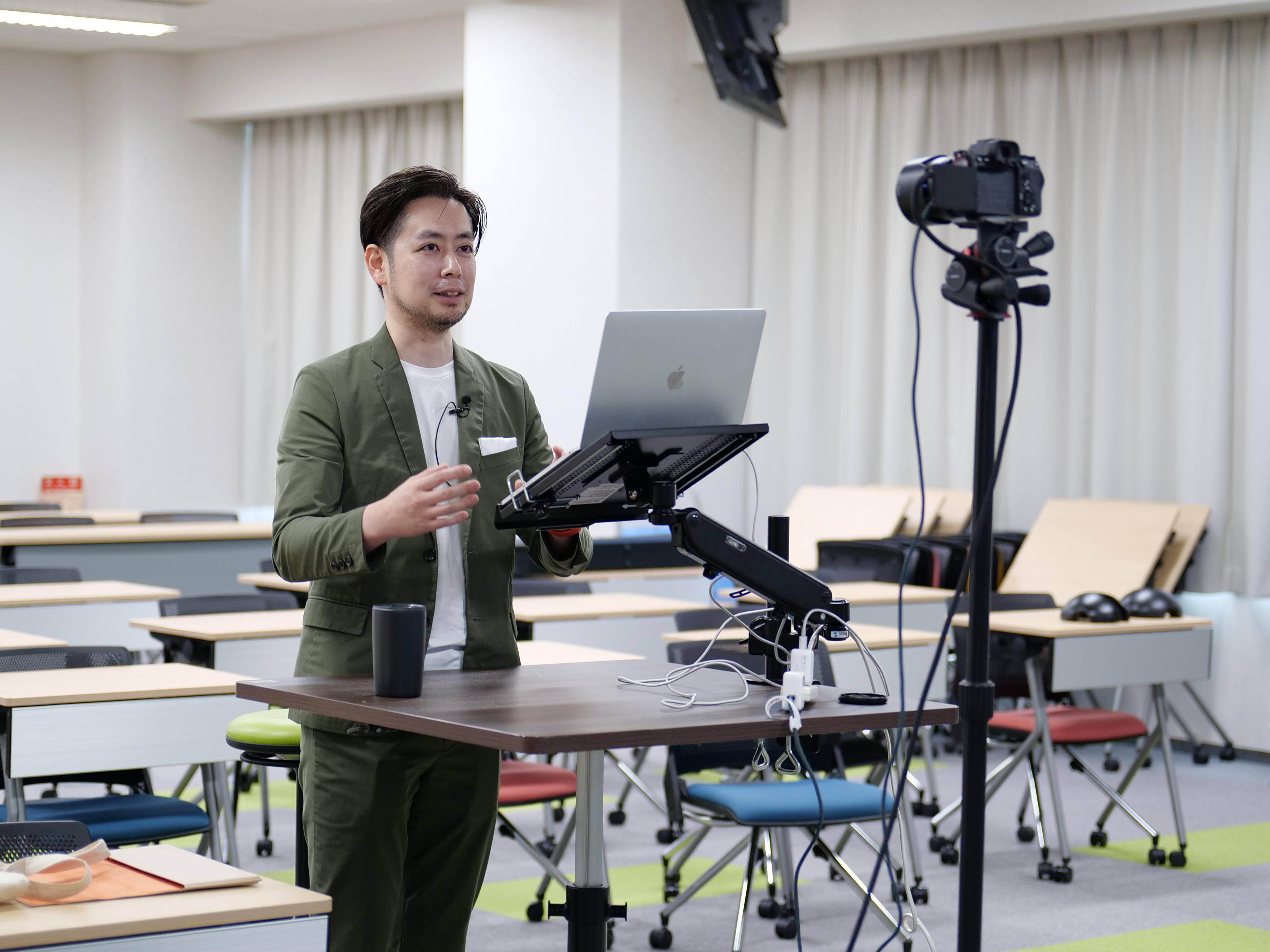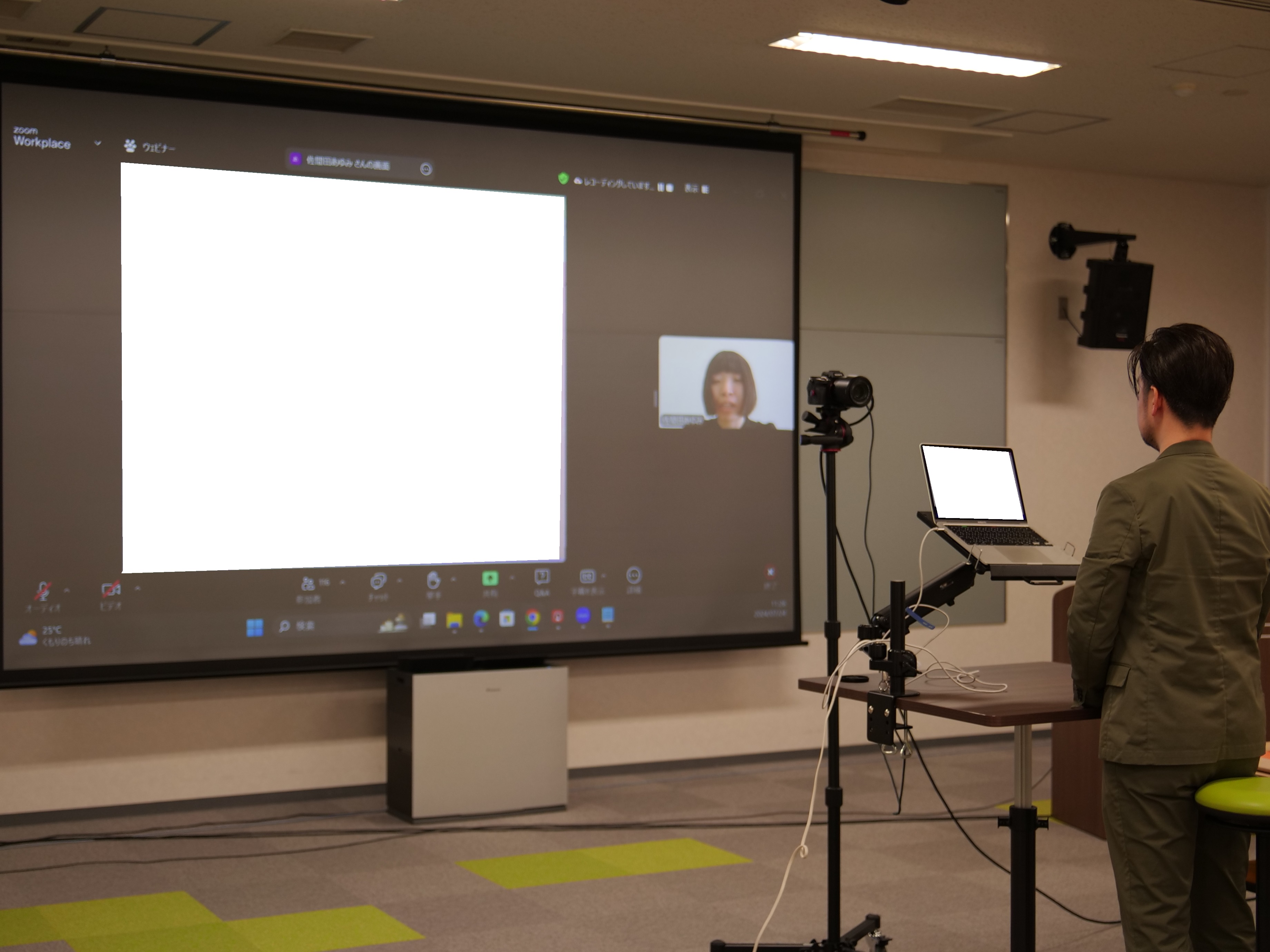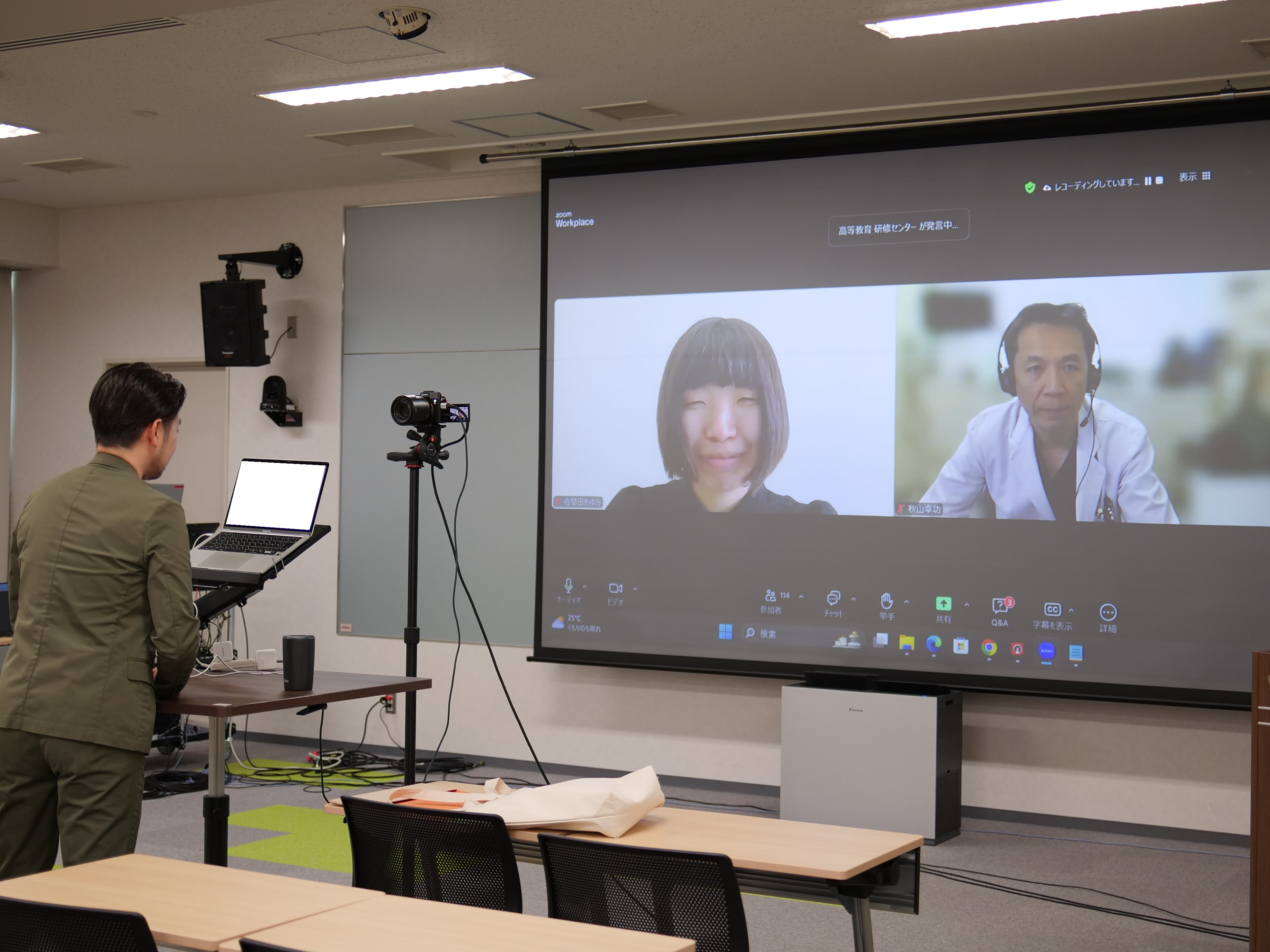Seminar
This seminar has finished
Series 'Generative AI in Educational and Research Activities'③
- Date and time
- 2024.7.24 (Wed) 11:00-12:00
- Modality
- Zoom Webinar
- Lecturer
Dr. Yukinori Akiyama (Lecturer, Division of Neurosurgery, Sapporo Medical University)
Ms. Ayumi Samada (Assistant, Faculty of International Humanities, Showa Women’s University)
- Target
- Faculty and staff members of higher education facilities
- Language
- Japanese
- Remarks
- Category C: HE trends
- Poster
- View poster
Co-organized by Center for Open Education Hokkaido University
How do university faculty members perceive generative AI, including ChatGPT? We often hear voices saying, “We are not particularly worried, as it hasn't yet reached the stage where it can be effectively used for class reports.”
However, in the society that university students will enter after graduation, generative AI is already being utilized in many fields. Even if there are some inaccurate aspects, shouldn't students learn the correct ways to interact with it while they're still in university? Furthermore, both the university faculty and staff cannot ignore the constantly evolving generative AI.
Therefore, let's explore practical examples how educators are utilizing generative AI in educational and research activities. We cannot teach students what we ourselves do not know. Let's engage with examples of utilization, try using them ourselves, and identify their strengths and weaknesses.
During each session, two individuals will introduce topics. Following each presenter’s 20-minute presentation, there will be a 20-minute discussion, including a Q&A session.
The third session will be presented by two speakers from Sapporo Medical University and Showa Women's University.
Dr. Yukinori Akiyama (Lecturer, Division of Neurosurgery, Sapporo Medical University)
Generative AI includes tools like ChatGPT, DALL-E, MidJourney, Stable Diffusion, Codex (GitHub Copilot), Jukedeck, OpenAI Whisper, DeepArt, and RunwayML. These tools can recognize and generate language, images, sound, and more. Among them, I use ChatGPT. In medical clinical research, many statistical analyses are needed, and ChatGPT can provide answers about selection and use. In AI research, it can also generate code to fix bugs in programs. I will show you how these tools are used in practice.
Ms. Ayumi Samada (Assistant, Faculty of International Humanities, Showa Women's University)
I use generated AI such as ChatGPT and Copilot, as well as AI translation tools such as DeepL. I have been able to improve my work efficiency by using these tools to brush up my English writing, understand the outline of articles, translate, and generate ideas, but I also realize that not everything can be “left to AI”. In this issue, I will touch on the pros and cons based on actual cases, as well as introduce materials that have been helpful in considering the respective roles of both humans and generative AI.
How to join this seminar
Please fill out the Zoom registration form on the below site to register.
https://us06web.zoom.us/webinar/register/WN_i307qtcwTVqnuDpNqL8Z5g
How to participate on the day
After registering, you will receive an email from no-reply@zoom.us with the seminar name in the subject line confirming your registration.
To join the meeting, please click on the link indicated by “click join the webinar”in that email.
Please fill in the required information as necessary.
※This seminar is also scheduled to be held in August.
On the day





